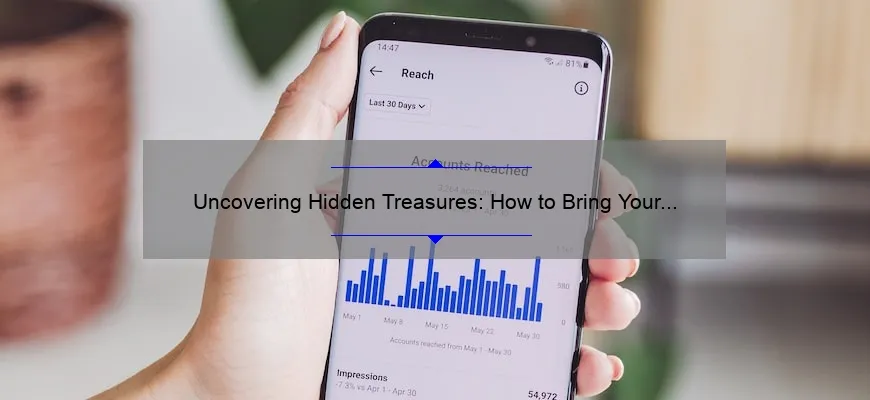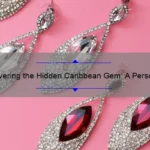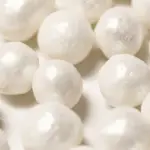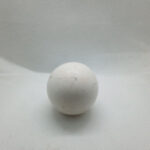What is bring the unusual gem to an appraiser
Bring the unusual gem to an appraiser is the process of taking a unique or rare gemstone to a professional who can evaluate its value and provide you with important information about it.
- An appraiser will examine your unusual gem using special equipment such as a microscope or refractometer, to determine its authenticity and quality.
- The expert will also evaluate your precious stone’s shape, cut, color, carat weight, and clarity level to give you an accurate estimate of its market price.
- Apart from determining the value of your gemstone for insurance purposes or selling it in a private setting, getting it appraised by a certified jewelry expert is essential when donating it for tax deductions or legal settlements.
In conclusion, bringing your unusual gemstone to an appraisal specialist is critical if you want reliable data on your valuable treasure’s worth!
Step-by-Step Guide: How to Bring Your Unusual Gem to an Appraiser
As an avid collector of unusual gems, you have probably spent countless hours scouring the markets for that rare and beautiful stone that catches your eye. After finally finding it, the next step is to get it appraised by a professional gemologist to determine its true value.
Below is a step-by-step guide on how to bring your beloved gem to an appraiser:
Step 1: Do Your Research
Before selecting an appraiser, do some research on their experience with different types of stones. It’s important to find someone who has expertise in evaluating unusual gems as they can be very different from more common stones like diamonds or sapphires.
Step 2: Clean and Prepare Your Gem
Make sure your gemstone is clean and free of any debris before taking it to an appraiser. Any dirt or blemishes could affect the accuracy of the appraisal.
Step 3: Package It Securely
Securely package your gem in a protective container such as jewelry packaging that fits snugly inside another box. This will help prevent any damage during transportation.
Step 4: Schedule An Appointment With The Appraiser
Call ahead and schedule an appointment with your chosen appraiser so they can dedicate ample time for examining your gem through a jeweler’s-grade loupe under good quality color corrected light condition which illuminates every aspect of reflective shine within each tiny crystal clear facet surfaced making up the finished cut piece hence reflecting every spectrum of colors if present.
During this appointment, be prepared with any documentation about the history or previous ownerships (if possible) you may have gathered about where and when these precious gems were discovered thus landed in possession while still preserving their natural beauty components giving them distinctive values depending upon rarity gradings range prevalent at market then matching its existing clarity grades standards thereof furthermore marking purity level appropriately etc.
Remembe; A qualified independent third party valuer/appraiser should give an appraisal value that is within +/- 20% of any other qualified independent third party report when appraising the same gem under a similar methodology.
In conclusion, by preparing well in advance and selecting a trusted professional for your gemstone appraisal you’re well up to achieve best possible competitive resale-able values whether it’s kept as heirloom or sold on. Appraisal fees will depend on several factors such as rarity; especially to include natural untreated color and clarity with fine cutting craftsmanship.
Don’t let your unusual gemstones collect dust! Get them valued so their treasured worth can b
Frequently Asked Questions About Bringing an Unusual Gem to an Appraiser
If you have an unusual gem that you’d like to get appraised, it’s normal to have a few questions on how the process works. After all, gems aside from diamonds or pearls may not be as straightforward for some appraisers.
To help clear things up, we’ve compiled a list of frequently asked questions about bringing an unusual gem to an appraiser:
1. What is considered an unusual gem?
An unusual gem can be any precious or semi-precious stone that isn’t typically found in mainstream jewelry. This can include stones such as amethyst, opal, turquoise, tanzanite and many others.
2. How do I choose the right appraiser for my unique stone?
When looking for the right appraiser for your stone make sure they’re experienced with working with untraditional gems in jewelry settings or loose state . Appraisers who specialize in this type of work will have access to additional resources including equipment and information potentially increasing their accuracy with rarity more than those without .
3. Should I clean my Stone before getting it appraised ?
No , not Typically . Wait until after! cleaning agents combined with certain environments could render changes difficult to undo which might give you incorrect readings when eventually evaluated .
4. What should I bring with me when meeting with an appraiser?
You should bring whatever paperwork came along with your piece of jewelry , proof of insurance policy(s) if applicable invoices (if accessible ), research that can elaborate why/how YOUR species has value etc
5.What types of documents does appraisal provide ?
The two main documents associable are: Insurance purposes -for knowing how much coverage would equate appropriate returns /and Immediate assets-pertaining generally acquisition/depletion figures inclusive but subject according potential accessibility depending individual assessors/types services specific regions/governing bodies .
6.How long does it take to complete appraisal ?
It depends upon various factors e.g. dimensions & intricacies, rarity so on of stone and expertise available. . It could take anywhere from few hours to days .
7.What determining factors do appraisers use when evaluating unusual gemstones?
The appraisal typically takes into account the same types& determinants as conventional precious stones but additional research documented regarding the specific characteristics of rare gems like origin, cut, clarity,effects upon light emitted etcis often done by such assessors.
8.How can I protect my valuable unusual gem?
You should make sure that your lovely and unique adornment is safe-kept where it arises less chances for damage encounter . That means keeping pieces separate in padded pouches avoiding strenuous activity while wearing them, avoid exposure to high temperatures (like saunas or hot tubs–they really affect porous qualities) , also verify warranties /protection plans.
Conclusion:
If you have a non-traditional precious stone or an uncommon mineral then doing appropriate research before presenting it to be ranked would always stand beneficial. So start exploring resources(there are plenty of knowledgeable folks waiting!), devise notes- what sets your jewel apart from others and follow through with questions during inquiry process related to various variables establishing overall value estimation picture i.e type of market(e.g local/international), rarity factor around region present resale worth prospects reasonable pricing expected selling rates all providing background information crucial if recouping losses at some point in future becomes essential!
The Top 5 Facts You Need to Know before Bringing Your Unusual Gem to an Appraiser
If you own an unusual gem, it’s essential to get it appraised by a professional in order to determine its true value. However, before setting foot in an appraiser’s office, there are a few vital facts that you should be aware of in regards to your precious stone. Here are the top five things you need to know before bringing your unconventional gemstone to an appraiser.
1. The Four C’s
The four C’s refer to Cut, Color,Carets and Clarity – these qualities play significant roles when determining the worth of any precious stone.
– Cut: A well-cut jewel allows more light into the stone, enhancing its luster and brilliance
– Color: Gemstones with naturally bright hues tend to fetch higher prices than those with darker or less vibrant colors.
– Carats: Simply put – heavier stones translate into more expensive ones(note that this has nothing todo with face value of stamp on denim jeans)
– Clarity: Jewelers will also examine whether there are any blemishes or imperfections within the stone itself .
2. Unconventional Gems Require Specialized Appraisals
Conventional gems like diamonds typically have standard guidelines for determining their value.However, when dealing with unique or unconventional gems such as tourmaline , blue moonstone and others which arrive from African teriors etc., finding experienced professionals who can accurately judge their rarity and quality is more challenging.Their highly specialized nature often makes them difficult for general jewelry stores staffs familiarization but could attract price sheets higher than conventional premium designs due audience buying power.
3.Ensure Your Item is Cleaned Before Bringing It In
There may be small scratches,tarnish,residue on the item if it hasn’t been worn/cleaned over time.Actually cleaning won’t affect valuable property unless cleaned hazardous eg acid based.Safely ensure rinsing as instructed would help present your piece at its cleanest state.However, Avoid using abrasives or harsh chemicals or ultrasonic cleaners unless advised by manufacturer, as this can damage both the quality and value of your gem.
4. It Takes Time to Properly Appraise Gems
You may expect to spend several hours consulting with an appraiser when dealing with unique and precious gems since any mistake in evaluation could significantly impact its worth.Such consultations provide ample opportunity for engagement therefore it is ideal you conduct a pre-consult via telephone or email before proceeding physically.
5. Find An Accredited Gemologist
Working only with accredited gemologists provides confidence that they have gone through extensive training on jewelry appraisal.Most have qualifications from bodies such as American Gem Society , GIA(Gemological Institute of America),Gemmological Association etc.For instance,GIA reports are highly respected in diamond trade circles globally.They help verify accurately all findings due to their reputation having been regarded as training ground for future professionals.
Overall, be prepared especially about stating current market trends.Don’t get swayed towards sellers who show excitement without properly being furnished detailed certification/appraisal documentation which might render them to lose credibility.Many customers often shop around different destinations until they find one that best fits their requirements.Also,it would be unwise not prioritizing proper insurance coverage(from reliable underwriters)once locating desired valuategiver.Joined together these aforementioned facts will position you above average customers unsure how things work into effectively(through online hubs)negotiating prices so why not take advantage today!
Finding the Right Appraiser for Your Unusual Gem: A Comprehensive Guide
If you’re a collector or jeweler with an unusual gem, finding the right appraiser to accurately value your treasure can be a daunting task. Not all appraisers are created equal and it’s important to do your research before entrusting someone with assessing the worth of your unique piece.
First things first, make sure the appraiser you choose has proper credentials. There are numerous organizations that provide certifications for gemologists and jewelry appraisers including the Gemological Institute of America (GIA) and American Society of Appraisers (ASA). These credentials ensure that the appraiser is knowledgeable in their field and follows ethical appraisal practices.
Next, consider their expertise. Just because an appraiser is certified doesn’t necessarily mean they have experience evaluating unusual gems such as alexandrite or fancy colored diamonds. Look for an individual who has worked extensively with similar stones and possesses specialized knowledge on them specifically. It may take some digging but finding someone who is well-versed in uncommon gemstones will save you headaches down the road when trying to sell or insure your piece.
It’s also wise to inquire about how often the appraiser updates their skills and stays up-to-date with their education on new trends in stone treatments/alterations, identification techniques, etc. You want somebody working on your special item who regularly attends professional development opportunities so they stay informed throughout time.
In addition to relevant qualifications/expertise in this area, keep customer reviews/testimonial history under consideration while selecting said service provider! Do previous customers seem pleased? Does anyone mention specific areas they excelled at like communication/making one feel comfortable during visits?
Lastly: affordability plays a big role — we understand many items requiring appraisal come from unexpected corners of life which require utmost care but isn’t always equipped w/extra funds upfront due solely towards examining what’s brought forward through time into ones hands…be mindful if price seems off – DO YOUR RESEARCH. Sometimes, paying a bit more for top-tier quality appraisal specialists may be necessary currently if other competitor brands don’t specialize in unique gemstones but costs shouldn’t overly stress one’s pockets.
In conclusion, it’s important to find an experienced appraiser with proper credentials who is knowledgeable specifically on the stone(s) you need evaluated and stays up-to-date professionally. Taking all factors into consideration will ensure that your uncommon treasures are valued properly by someone you can trust to assign validity towards them appropriately!
How Much Is My Unusual Gem Worth? Understanding the Appraisal Process
If you are looking to sell a unique or unusual gem, the first question that may pop up in your mind is – how much is it worth? While there’s no surefire way of knowing exactly what it’s worth, an appraisal by a professional appraiser can help determine its value. In this blog post, we’ll take a closer look at the process of getting your gem appraised and understanding just how much it could be worth.
What Does Appraisal Mean?
An appraisal refers to the process of evaluating any piece of valuable property like jewelry, art, antique furniture and other collectibles among others. The point is to establish an item’s pre-existing condition as well as its fair market value at that particular time. Such evaluations will consider all available relevant information sources such as auction records, trade pricing data or online sales platforms.
For our purposes here though, “unusual gems” refer merely to rare stones or minerals which meet several standards set by knowledgeable collectors and professionals alike–usually including rarity combined with some level of historical significance beyond their natural mystique.
Factors Affecting Gemstone Value
The evaluation methodology employed during an appraisal takes into account various factors when assessing the relative quality/quantity/marketability/cost/resale prospects/etc., along with those attributes specific/original/shared across similar items from virtually any class & nature imaginable.
When determining a gem‘s value some primary considerations would include;
1) Rarity: This factor is closely connected to supply vs demand principles; if there isn’t enough mining production for example then prices usually rise since ingenuous buyers know they cannot obtain them elsewhere anytime soon!
2) Color: For instance traditional diamonds come in varying shades ranging from white through yellow even brown hues too etc., however once certain colors have been graded less common (pink/blue/green/purple/orange/red),things get more interesting as rarity pushes valuations higher still!
3) Cut Quality: Flat surface polishing of gems or any crystalline material is where the main sparkle emerges if done well.Therefore, an appraiser will analyze how much light returns from different angles, and do some math to figure out its brilliance (shine) relative to ideal proportions for each stone type.
4) Carat weight: This characteristic references a gem’s size as measured by mass. While being one factor that determines appraisal value alone it does not predict rarity which always affects demand dynamically due to historical context and available producers.
5) Clarity : Appraisers call this “imperfections”; clearness in a given specimen contributes significantly towards overall desirability with many stones possessing semi-precious quality yet dazzling fans via sheer perfect surfaces other hardly be seen through due inclusions…
Where Can I Get My Gem Appraised?
The best place to start looking for an appraiser would be by asking among local reputable jewelers who are members of accredited professional organizations such as GIA®, ASA™, NAJA or ISA certified credential/s will confer appropriate assurances.. Not only are they knowledgeable about gems but they should also have plenty of experience handling even rare specimens. They often provide updated market insight helping gem admirers know when’s best time selling/buying before dashing into vogue fads….
How Much Does It Cost To An Appraisal?
An appraisal generally costs anywhere from -0 depending on your location and the item you’re having appraised–complexity matters because sophisticated equipment may need deploying scrutiny can be painstaking & arduous).
Expect The Unexpected Witty-Know Hows!
It’s worth pointing out;appaisals rarely find treasure chests under bedsick mattresses…but still Maybe Your Stone Is Actually MORE Worth Than You Think! A Key Take-Aways From our Primer – Did Y’all Know?:
1 – Sticklers For Rarity Win Buyers’ Wallets Eventually!
2 – Lucrative Commissions Come From Proper Understanding of Historical Relevance Context for Gemstones!
3 – Yes, You Can Get Your Unique Stone Appraised Quite Professionally Without Busting A Bank!
4- Final Value Depends on MANY Factors….
In conclusion, getting an appraisal is a crucial step in understanding how much your unique or unusal gem is actually worth. It’s important to remember that the final value will depend on various factors such as rarity, color and clarity among others. If you’re unsure where to look for a reputable appraiser near you just shop around till you find one with proper certification/s ready and willing to walk through this process assuring honesty …Good Luck!!!
Insider Tips for Maximizing the Value of Your Unusual Gem with a Professional Appraisal
If you’re lucky enough to own an unusual gem, whether it’s a rare colored diamond or a one-of-a-kind piece of rough opal, it’s likely that you already know that your gem is valuable. However, in order to maximize its value and make sure that you get the most out of your investment, it’s important to have your gem professionally appraised.
Why is professional appraisal so important? For starters, while you may be able to gather some general information about your gem from online sources or jewelry store salespeople, only a certified appraiser with experience in identifying and valuing unique gems will be able to give you a precise estimate of what your stone is worth on today’s market. Plus, if you ever plan on selling or insuring your precious item down the line, having an official appraisal certificate will help establish its true worth as well as its authenticity.
But how do you find the right expert for the job? Here are three insider tips:
1. Look for someone who specializes in unique stones
While many appraisers work with common diamond shapes and precious metals every day (think engagement rings), not all have extensive knowledge when it comes to more unusual materials like tanzanite or tourmaline. So when searching for an evaluator who can accurately assess these types of gems: Ask around local jewelers located globally; they might know exactly which professionals handle such specialty items regularly.
2. Check their credentials thoroughly
Make sure that any potential appraiser has been properly trained in gem identification and evaluation procedures by checking their certifications – The Gemological Institute of America (GIA) offers highly-respected courses on this topic – there are other organizations too but GIA sets gold standard across globe.
3. Be upfront about what kind of expertise you need
When booking an appointment with an appraiser say clearly what kinds of gems etc., are there so they should prepare accordingly – some appraisers specialize in a certain type of stone or material, as mentioned previously. For instance, if you want to have your unique ruby evaluated for authenticity and price point, make sure that whoever you choose has experience working with rubies specifically and not just colored gems in general.
Finally – come ready with all the information about the gem: the vendor from whom it was purchased; any documentation related to its origin et al so evaluate gets clarity on every parameter which is relevant!
In conclusion, having an unusual gem can be an exciting luxury asset and investment but without professional appraisal certificate it’s hard to know where it lies among peers – Make a savvy decision by finding qualified appraiser who specialized in evaluating rare stones while keeping above tips handy!
Table with useful data:
| Gem Type | Appraiser Name | Contact Number | Address |
|---|---|---|---|
| Alexandrite | John Smith | 555-1234 | 123 Main St., Anytown, USA |
| Paraiba Tourmaline | Amanda Jones | 555-5678 | 456 Market St., Anytown, USA |
| Jeremejevite | Michael Johnson | 555-4321 | 789 Broadway, Anytown, USA |
| Grandidierite | Elizabeth Brown | 555-8765 | 321 Oak St., Anytown, USA |
Information from an expert
As an expert in gem appraisal, I highly recommend bringing any unusual or unique gemstone to a professional appraiser. Certain gems can be incredibly rare and valuable, and without the proper knowledge and equipment, it may be difficult to determine their true worth on your own. An experienced appraiser can use various methods to identify the stone’s origin, type, quality, and potential value based on factors such as color, clarity, cut, carat weight, and market demand. It is important to have accurate information before selling or insuring any gemstone investment.
Historical fact:
In ancient times, gems were highly valued and often used as currency. The Roman Emperor Nero was known to have given his mother a pearl worth more than the cost of an entire province in modern-day Italy. Bringing an unusual gem to an appraiser would have been essential for determining its value and ensuring it exchanged hands fairly.






